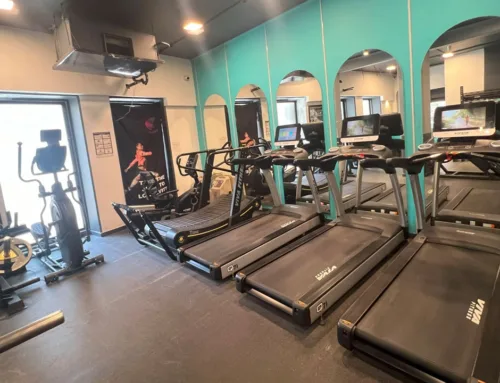Trying to shed pounds while building chiselled abs and muscles? Despite your attempts to monitor your diet, exercise, and lift weights, the scale is still going down, but the strong figure you wanted to achieve just doesn’t seem to be taking shape.
Although losing weight may be wonderful, what’s the deal? Is it feasible to lose weight and fat while gaining muscle?
In essence, yes, it is possible for individuals to do both, but it’s not particularly simple.
It will require a lot of discipline for an average person to lose weight and build muscle, which can be challenging and even painful (imagine self-discipline sort of agony), but it is possible to have the best of both worlds. Yash Birla explains how to build muscle and lose fat in this article.
Fat loss vs. muscle gain
The first two key ideas are that there are differences between weight loss and muscle building, which frequently clash with one another, says Yash Birla.
To lose fat or weight, your body has to be in a caloric deficit, which means you must consume fewer calories each day than it takes to maintain your current weight.
The challenge here is that your body must be in a calorie excess in order to grow muscle. This surplus fuels your body’s ability to mend itself and subsequently increase muscular growth.
Based only on scientific principles, some individuals would believe it to be impossible. Because your body may start to break down other parts of itself to meet its energy needs if you find yourself in a situation where you are constantly at a caloric deficit. Unfortunately, this may lead to a situation where your body starts using muscle as fuel rather than fat.
When science is against you, how can you put on muscle while reducing weight?
Tips on how to build muscle and lose fat
- Remember: You are what you eat
Yash Birla explains that the first thing to keep in mind is that exercising won’t help you lose weight without simultaneously helping you build muscle. It all boils down to your diet. Some individuals hold the view that “you are what you eat,” and this is especially accurate when considering gaining muscle and losing weight.
For your body and cells to receive the proper nutrients while keeping you inside your caloric deficit, it’s critical that you choose meals that will be low in calories yet rich in nutritional content. It is claimed that eating choices account for around 80–90% of the factors affecting weight reduction, while exercise typically accounts for 10–20%.
You’ll eat a certain quantity of calories every day. Those calories can then be used by your body in one of three ways: as fuel for your muscles to grow again, as fat, or as both. There needs to be a limit on the number of calories consumed for our bodies to simply operate. This is referred to as the “basal metabolic rate”.
Insufficient calorie intake might cause problems with your metabolic rate. Your metabolism slows down as a result of your body’s need to save you from starvation. In addition to making your body cannibalise muscle and retain fat, consuming insufficient calories is not precisely what you want!
- Prioritize foods rich in protein
Make sure the food you eat has adequate protein if you want it to be low in calories yet high in nutritional value. Taking this action has multiple benefits for your body, says Yash Birla.
Your body will burn more calories than it takes in if you maintain a calorie deficit and eat enough high-protein foods. Additionally, it gives your body the nutrients and energy needed for muscle recovery. Protein-rich diets are essential for both growing muscle and reducing body fat.
- Strength train a few days a week
You must lift reasonably high weights until your muscles genuinely reach a point of exhaustion and failure—at that point, your muscles will rip and degenerate—in order for the body to properly gain muscular mass. You will strengthen and define your body during this mending procedure.
However, it’s crucial to remember that while strength training, you’ll need to make sure you’re getting enough calories to fuel your body and aid in muscle recovery. If you don’t, your body will use the bulk of your muscles as fuel, which is the exact opposite of what you want.
Not every strength training programme will be suitable for you, depending on your fitness objectives and overall health. To lower the chance of muscle damage or joint pain, see a licenced sports trainer or fitness professional before beginning a new exercise plan.
- Remember the tortoise, not the hare
In our culture of instant gratification, patience is undoubtedly a virtue, but it also offers numerous advantages, especially for our long-term health. Keep in mind that even Yash Birla didn’t become a bodybuilder overnight if you want to grow muscles and shed weight.
While losing weight quickly may be alluring, you run the risk of losing both muscle and fat. Consider limiting your weight loss to no more than 1 to 2 pounds every week. And don’t give up if the rapid progress you first made gradually slows down.
It will get increasingly challenging to gain muscle while decreasing fat as you move closer to your goal but don’t give up. Because of the slow decrease, you are more likely to lose fat than muscle. If carried out too rapidly, it could be harmful to your muscle tissue and/or health goals.
- Takeaway
Your body may use its fat reserves as fuel and as a potential source of muscle growth provided you can maintain a lifting regimen and eat in a caloric deficit. Yash Birla explains more about weight training in his book ‘Building The Perfect Body’ which is a perfect guide for beginners.






Leave A Comment